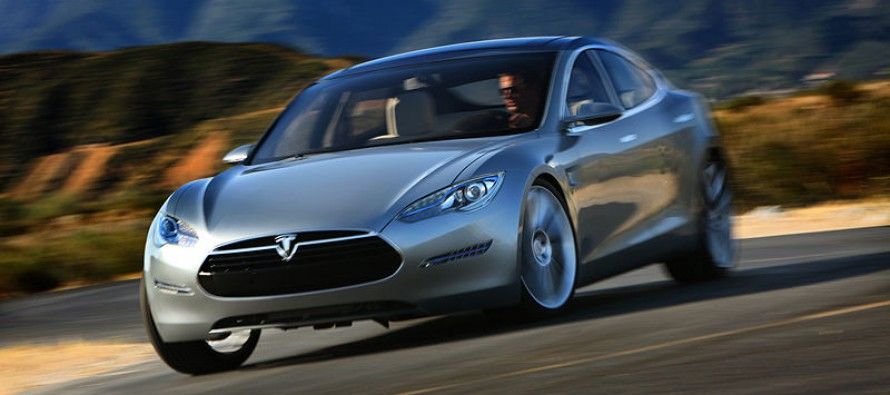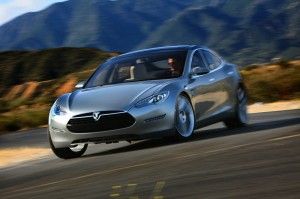Despite incentives, Tesla stiffs CA

 Ensnared by deep contradictions between its regulations and priorities, California officials failed to close a massive deal with automaker Tesla, allowing Nevada to ink a landmark agreement.
Ensnared by deep contradictions between its regulations and priorities, California officials failed to close a massive deal with automaker Tesla, allowing Nevada to ink a landmark agreement.
California and Nevada were just two of the states vying for Tesla’s $5 billion “gigafactory,” where the company will produce the lithium-ion batteries that power its electric cars. Arizona, New Mexico and Texas had also hoped to lure Elon Musk’s marquee business within their jurisdiction.
All five states considered by Tesla had advanced in competition with a mix of incentives, subsidies and regulatory exemptions that attracted criticism from the left and the right of the political spectrum. But California’s effort inspired perhaps the greatest vitriol. Anti-corporate environmentalists decried legislators’ unprecedented willingness to fast-track extraordinary carve-outs for Tesla from the state’s notoriously cumbersome environmental regulations.
At the same time, pro-business Republicans bridled at the possibility that California — Tesla’s home state — could be beaten out by other Western states, especially Texas. Under Gov. Rick Perry’s leadership, Texas has made a point of poaching companies from California — part of a political PR campaign that underscores the differences in economic growth brought on by different economic policies.
Paying the price
Caught between a rock and a hard place, legislators rushed to cobble together a package of promises that would at least keep California in the running for Tesla. Adding insult to injury, California had not even wound up on the initial shortlist for the fashionable firm, according to the San Francisco Chronicle.
“One of California’s biggest hurdles,” reported the Chronicle, “was the state’s extensive environmental review process, which often takes years for big construction projects. Musk explicitly pointed to that issue when discussing Gigafactory plans, saying it made the state an ‘improbable’ location. In response, California officials discussed finding ways to speed up the process, something they did last year for Sacramento’s basketball arena.”
Even earlier, Sacramento had offered exemptions from the California Environmental Quality Act to two National Football League stadiums. According to The Californian, those concessions helped set a precedent for the Tesla push — but deepened feelings, among influential opponents of the deal, that legislators were simply picking and choosing winners.
Layers of paradox built up over years of California politics had made the struggle to woo Tesla too complex to be carried out swiftly. Tesla’s unique product, meanwhile, cut across too many conflicting interest groups. As The Californian observed, Gov. Jerry Brown had campaigned in 2010 in part on reforming CEQA, but failed to move the ball in Sacramento. Tesla’s zero-emissions cars, meanwhile, tempted legislators with environmentalist sympathies to give the firm a way to skirt environmental laws beloved of activists.
Election-year fodder
Faced with the state’s inability to surmount these contradictions, some Republicans have claimed vindication in their attacks on Democrats, who have dominated the state’s policymaking for years. In the year’s only gubernatorial debate, Republican candidate Neel Kashkari slammed Brown for allowing Tesla to slip through California’s fingers. “I don’t think Governor Brown did nearly enough on Tesla or any number of businesses,” he said.
Kashkari’s criticism squares well with longstanding GOP criticism of complex regulation, overprotective environmental rules and other obstacles to free markets and new business creation. This election year, however, the influence of Tea Party conservatives and resurgent libertarians has altered the traditional pro-business campaign calculus for Republicans across the country — and California is not immune.
Careful observers have cautioned that Nevada’s victory in the Tesla sweepstakes comes at a substantial cost. Not only are the up-front expenses substantial — over $1 billion to Nevada taxpayers. What’s more, even if the so-called investment pays off, as Nevada Gov. Brian Sandoval insists it will, some analysts suggest the costs to economic freedom and economic health posed by the crony-capitalist aspects of the deal will be more painful, if harder to quantify.
Related Articles
‘Big Sis’ bad choice for UC
Editor’s note: This is Steven Greenhut’s final column for CalWatchDog.com, which he started in 2009. He is the new Sacramento
CA work comp costs soaring
Amid almost complete failure, the one signature achievement of Arnold Schwarzenegger’s seven years as governor was reform of the expensive
Jerry Brown Killed This Business
Gov. Jerry “Jobs Killer” Brown quickly is replacing departed adulterer Gov. Arnold Schwarzenegger as California’s second-worst governor. (Gov. Earl Warren



